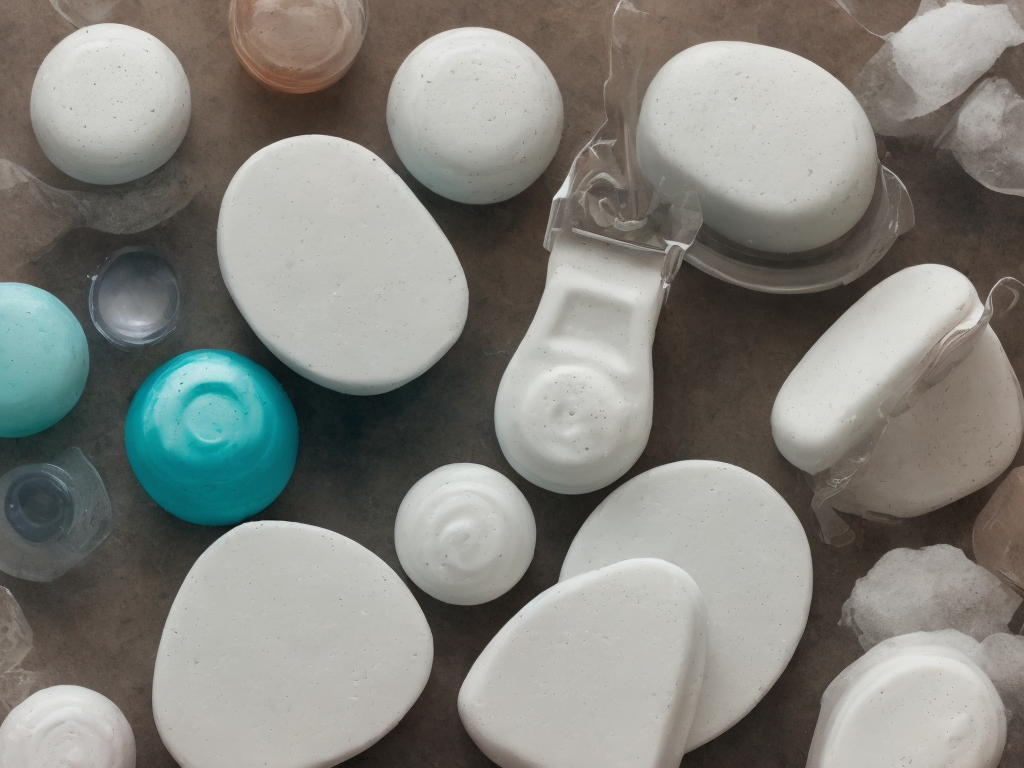
Soap and detergent are two common terms heard in our day-to-day lives, but most of us are unaware of their differences. Though both of them are surfactants, their composition and properties are completely different. Therefore, it's imperative to understand the difference between soap and detergent to get a clear idea of their usage and importance. In this article, we will discuss the fundamental differences between soap and detergent.
What is Soap?
Soap is a cleaning agent that has been in use for centuries. The first soaps were made using animal fats, ash, and lye from wood ash. However, today's soaps are made using vegetable oils or animal fats, caustic soda, and water. The soap-making process involves a chemical reaction called saponification, which involves the reaction of oils and fats with an alkali, such as sodium hydroxide or potassium hydroxide.
The saponification process produces two products - soap and glycerin. Glycerin is a byproduct that is used in many other industries such as food, cosmetic, and pharmaceuticals. On the other hand, soap is a surfactant, meaning it has both hydrophilic (water-loving) and hydrophobic (water-hating) properties.
Soap-based cleaning products are biodegradable, meaning they can be broken down easily by bacteria and are less harmful to the environment. They are also gentle on skin and are less likely to cause allergies or skin irritations. However, soap has some drawbacks too. They do not work well in hard water, meaning water that has high levels of dissolved minerals such as calcium and magnesium. Soap also leaves behind residue that can accumulate on clothes or surfaces.
What is Detergent?
A detergent is a cleaning agent that is specifically designed to break down and remove dirt and grease from surfaces. Unlike soap, detergents are synthetic compounds made from petrochemicals or oleochemicals. The surfactants used in detergents are more complex than those used in soap-making and are designed to remove oils and greasy soils effectively. The chemical structure of detergents is very different from that of soap, and they have fewer concerns with hard water.
Detergents are usually categorized into two types - anionic and nonionic. Anionic detergents are negatively charged and work well in hard water. They are commonly used in laundry detergents, dishwashing detergents, and for cleaning hard surfaces. Nonionic detergents, on the other hand, are neutral and work better for cleaning delicate fabrics, such as silk or wool.
Detergents tend to be harsher on the skin and can cause skin irritation or allergies. Detergents are also not biodegradable, meaning they can linger in the environment for a long time and harm aquatic life. However, some detergents are formulated using biodegradable surfactants, making them more eco-friendly.
Difference between Soap and Detergent
1. Composition
The fundamental difference between soap and detergent is their chemical structure. While soap is made from naturally occurring fats and oils, detergents are made from synthetic compounds, petrochemicals, or oleochemicals. Soaps are composed of molecules of sodium or potassium salt, whereas detergents are composed of complex molecules such as sulfates or sulfonates.
2. Hydrophobic and Hydrophilic Properties
Soaps are water-soluble and can only clean surfaces that can come in contact with water. They have hydrophilic heads that attract water and hydrophobic tails that repel water. This property makes them great at removing oils and dirt from surfaces exposed to water.
On the other hand, detergents do not have a saturated fatty acid chain, which makes them hydrophilic and hydrophobic at the same time. This means they can easily dissolve in both water and oil, making them great at cleaning greasy and oily soils. This property also makes detergents better suited for cleaning surfaces that cannot come into contact with water, such as carpets or upholstery.
3. Hard Water
Hard water can interfere with the cleaning capability of soap, resulting in soap scum and mineral buildup. Soap reacts with the calcium and magnesium ions in hard water, forming insoluble compounds that can leave a residue on clothes or surfaces. Detergents, on the other hand, are specifically designed to work in hard water and have chelating agents that help remove the mineral buildup.
4. Skin Sensitivity
Soap is generally considered to be gentler on the skin than detergents. Soaps have a lower pH level than detergents, which means they are less likely to cause skin irritation or allergies. Detergents, on the other hand, are known to be harsher on the skin and can cause dryness or irritation.
5. Eco-friendliness
Soaps are biodegradable as they are made from natural ingredients such as fats and oils. They can break down easily and do not accumulate in the environment, making them more environmentally friendly. On the other hand, detergents are not biodegradable, and some of the ingredients used in detergents can pose a threat to the environment.
Conclusion
In conclusion, soap and detergent are both surfactants that are commonly used as cleaning agents. Soaps are made from natural ingredients and are gentler on the skin, while detergents are synthetic compounds that are specifically designed to remove oil and greasy soils. While both soaps and detergents have their advantages and disadvantages, understanding the differences between them can help us choose the right cleaning agent for the task at hand.
 Self-Instruct
Self-Instruct